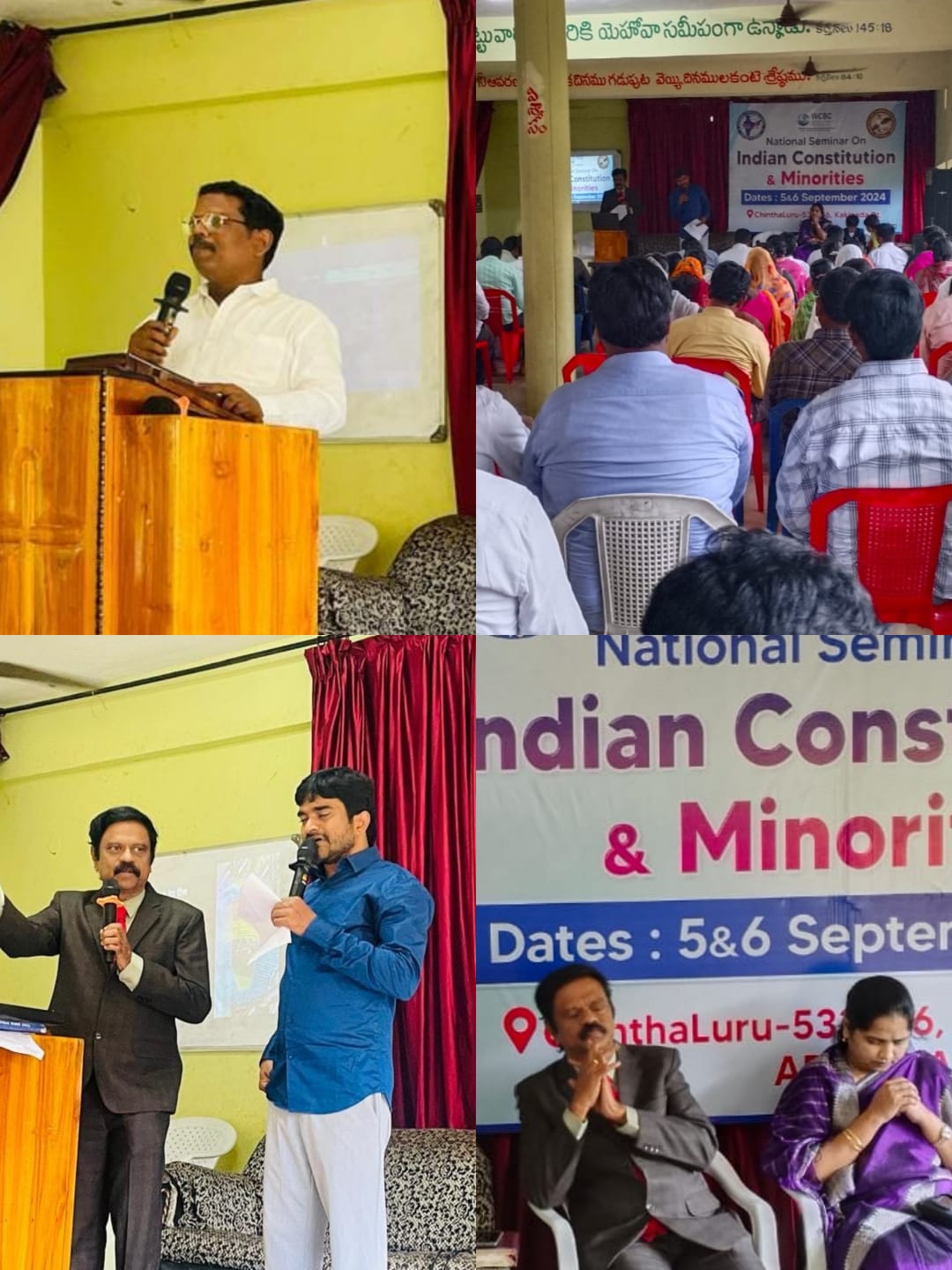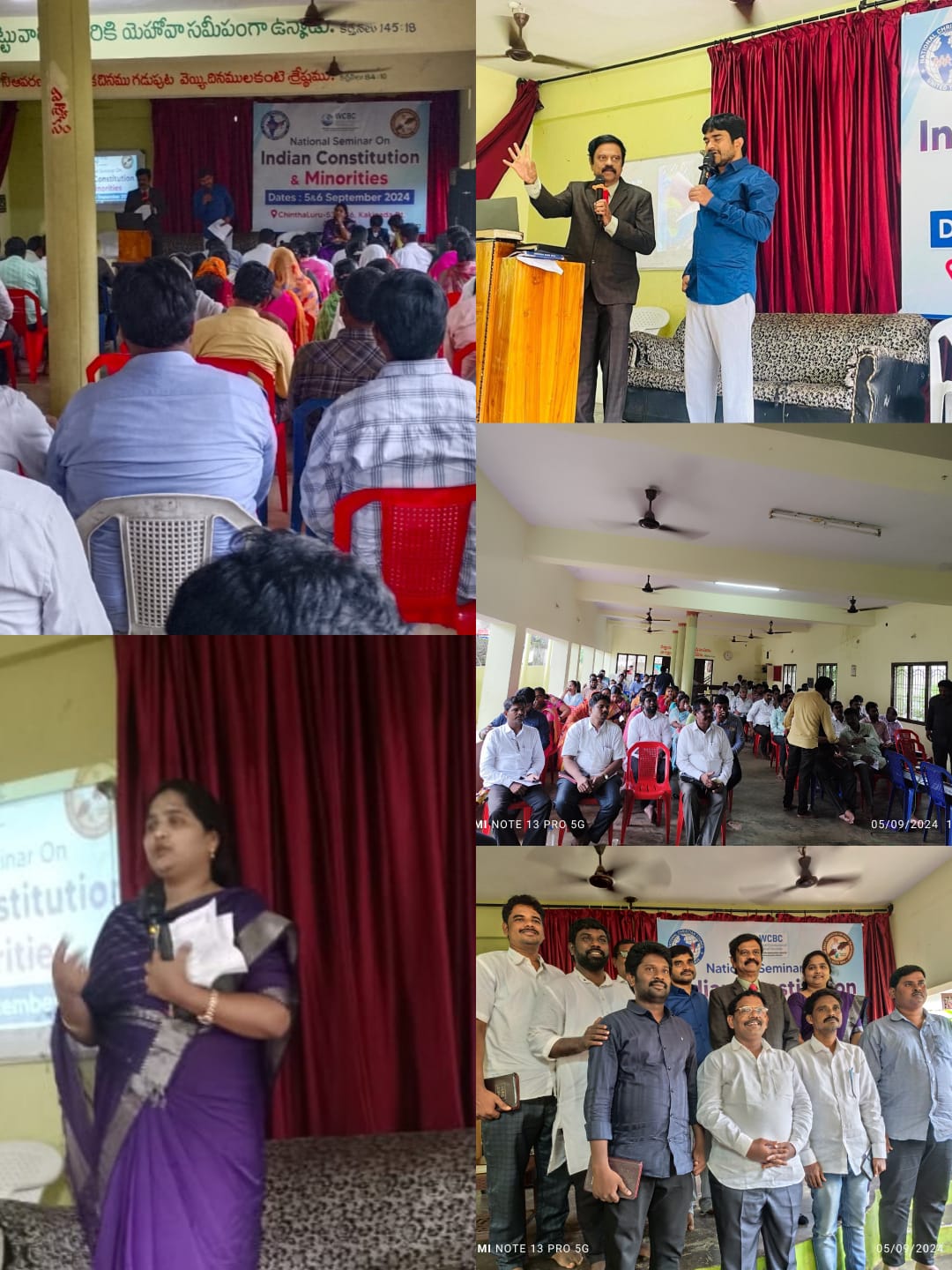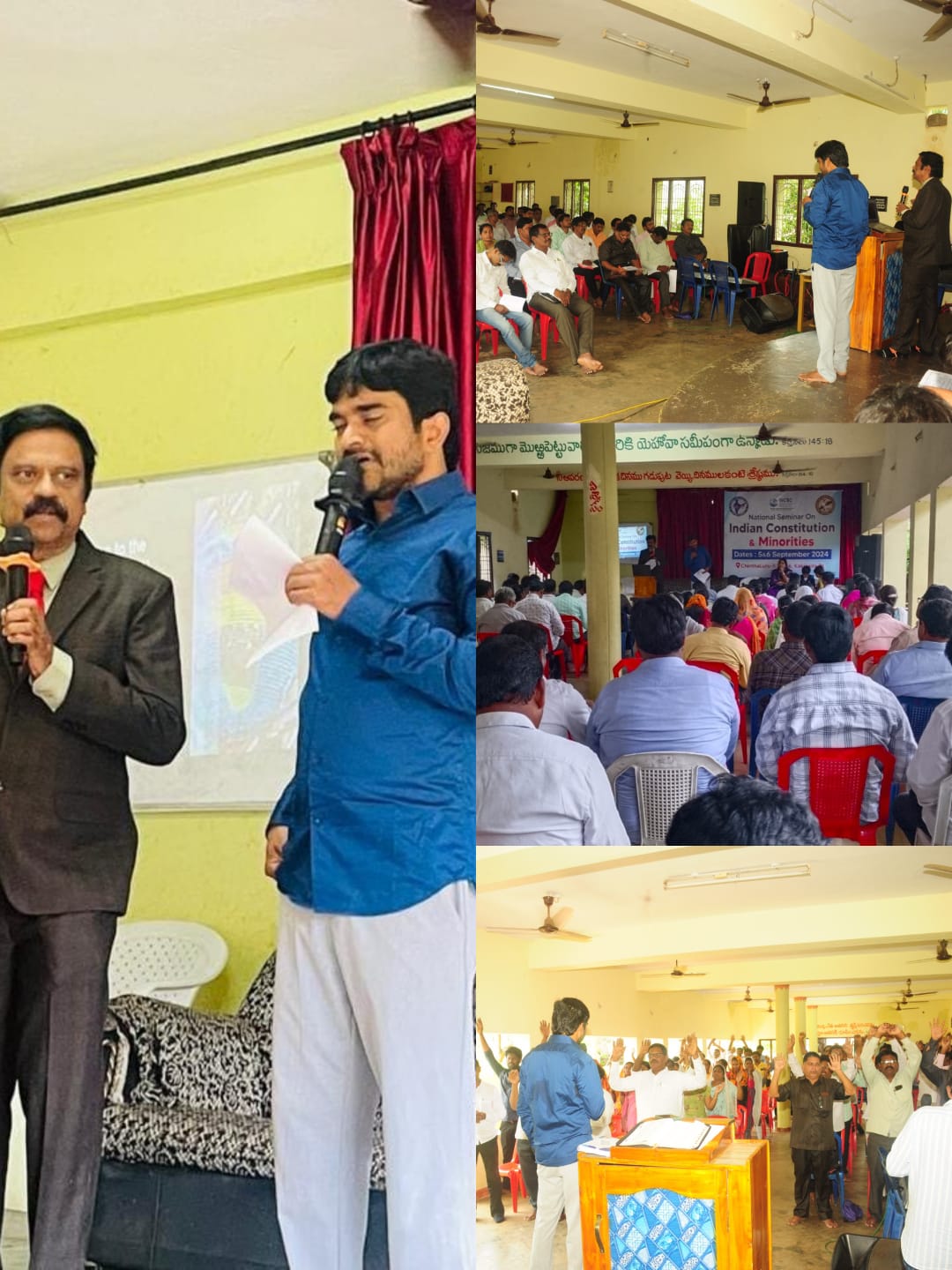
Report on the National Seminar: Indian Constitution and Minorities - Inauguration
Date: 5-6 Sept. 2024 Location: Chintaluru, Kakinada Dist., Andhra Pradesh
The two-day National Seminar on the Indian Constitution and Minorities, held in Kakinada District, Andhra Pradesh, gathered a notable congregation of 110 participants on the opening day. The seminar took place on the 5th and 6th of September 2024 and was hosted by the National Christian Council (NCC). With the country's current climate regarding religious minorities, the seminar's objective was to foster a deeper understanding of constitutional rights, with a specific focus on minority rights and responsibilities within the Indian legal framework.
Inaugural Session
The seminar began with a session of praise and worship, led by Bishop Abraham Samuel, the Regional Chairman of the NCC and the event's coordinator and host. Rev. Mosa Abraham, NCC Kakinada District President, formally welcomed all resource persons and delegates during the inaugural session. His address set a tone of unity and determination, emphasizing the importance of understanding both religious and constitutional tenets.
Keynote Address by Dr. Sam Paul Kolakaluri
Dr. Sam Paul Kolakaluri, Founder President of the NCC, delivered the keynote address. His speech emphasized the significance of the Indian Constitution, noting that it is one of the most extensive and comprehensive constitutions globally. Dr. Paul highlighted that, given the current volatile situation facing religious minorities in India, Christians should hold both the Bible and the Constitution with equal reverence, using them as tools to navigate and protect their rights.
He underscored the foresight of the constitution’s drafters, particularly Dr. Babasaheb Ambedkar, in ensuring that historical oppression of Dalits and marginalized communities would not persist in the new Republic of India. Dr. Paul discussed the Constitution's commitment to ensuring equal rights for all citizens, irrespective of their community or religion. He further explained the Preamble, which defines India as a Sovereign, Secular, Socialist, and Democratic Republic, a vision that remains critical for the nation’s future stability and peace.
Insights from Dr. John Dayal
Prominent Christian leader Dr. John Dayal addressed the seminar, pointing out the increasing violations and disregard for the basic principles enshrined in the Constitution. He stressed the dangers of the state's entanglement with religious fundamentalist organizations and warned of the consequences this could have on future peace and development. Dr. Dayal called for a return to the constitutional principles that prioritize inclusivity, equality, and secularism to ensure a harmonious and just society.
Focus on Women’s Rights & Gender Equality by Rev. Brighty Beulah
Rev. Brighty Beulah, National Vice President of NCC, emphasized the Constitution's guarantees of women's rights and elaborated on the importance of gender equality in the modern world. Her address focused on the various constitutional provisions aimed at protecting and promoting the rights of women, calling for an inclusive approach that empowers all genders equally under the law.
Discussion on Secularism and Minority Rights
Dr. Sam Paul continued his engagement by discussing the foundational principle of secularism within the Indian Constitution. He explained how secularism is designed to embrace all citizens, regardless of their religious beliefs. He emphasized that the Constitution not only guarantees the rights of minorities but also outlines the duties that citizens have towards one another. He urged the attendees to respect the religious sentiments of others, as they expect others to respect theirs.
A detailed discussion on the rights and duties of minorities was held, where it was pointed out that mutual respect and understanding between religious communities are vital for the peace and stability of the nation.
Legal Aspects of Religious Freedom
The seminar also featured a session on the legal aspects of religious freedom, where key articles from the Indian Penal Code (IPC), specifically Chapter 15 (Offences Relating to Religion, Sections 295 to 298), were explained in detail. These sections of the IPC deal with offenses against religious sentiments, and the session aimed to clarify the legal recourse available to individuals and communities facing religious intolerance or discrimination.
The first day seminar concluded with a call for greater awareness and understanding of constitutional rights among minorities. The speakers urged the Christian community to remain vigilant and informed, using both their faith and the Constitution as pillars of support in times of uncertainty. The first day ended on a note of solidarity and hope, with participants leaving with a renewed sense of purpose in upholding the values of equality, justice, and secularism.


